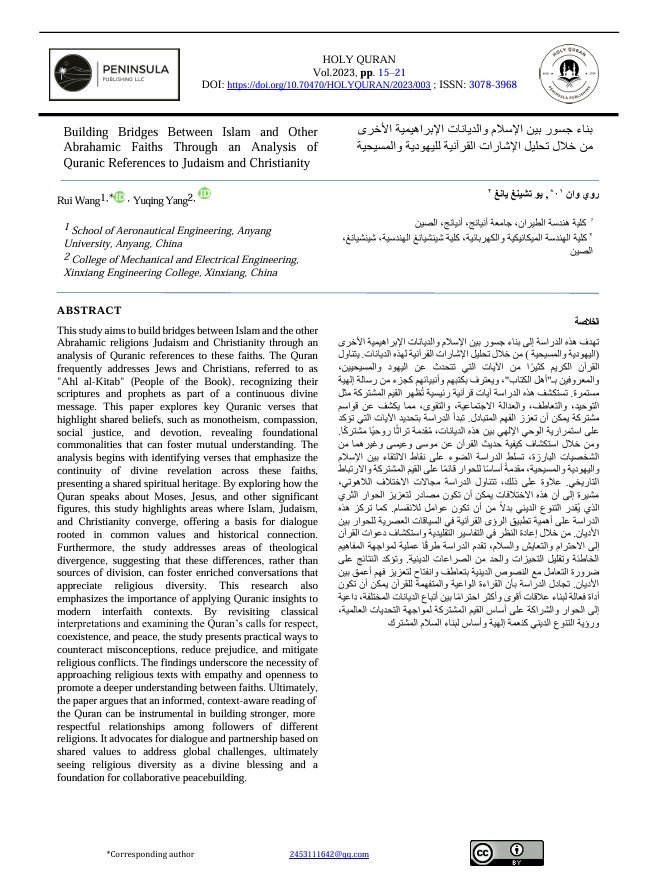Building Bridges Between Islam and Other Abrahamic Faiths Through an Analysis of Quranic References to Judaism and Christianity
Main Article Content
Abstract
This study aims to build bridges between Islam and the other Abrahamic religions Judaism and Christianity through an analysis of Quranic references to these faiths. The Quran frequently addresses Jews and Christians, referred to as "Ahl al-Kitab" (People of the Book), recognizing their scriptures and prophets as part of a continuous divine message. This paper explores key Quranic verses that highlight shared beliefs, such as monotheism, compassion, social justice, and devotion, revealing foundational commonalities that can foster mutual understanding. The analysis begins with identifying verses that emphasize the continuity of divine revelation across these faiths, presenting a shared spiritual heritage. By exploring how the Quran speaks about Moses, Jesus, and other significant figures, this study highlights areas where Islam, Judaism, and Christianity converge, offering a basis for dialogue rooted in common values and historical connection. Furthermore, the study addresses areas of theological divergence, suggesting that these differences, rather than sources of division, can foster enriched conversations that appreciate religious diversity. This research also emphasizes the importance of applying Quranic insights to modern interfaith contexts. By revisiting classical interpretations and examining the Quran’s calls for respect, coexistence, and peace, the study presents practical ways to counteract misconceptions, reduce prejudice, and mitigate religious conflicts. The findings underscore the necessity of approaching religious texts with empathy and openness to promote a deeper understanding between faiths. Ultimately, the paper argues that an informed, context-aware reading of
the Quran can be instrumental in building stronger, more respectful relationships among followers of different religions. It advocates for dialogue and partnership based on shared values to address global challenges, ultimately seeing religious diversity as a divine blessing and a foundation for collaborative peacebuilding.
Article Details

This work is licensed under a Creative Commons Attribution 4.0 International License.
